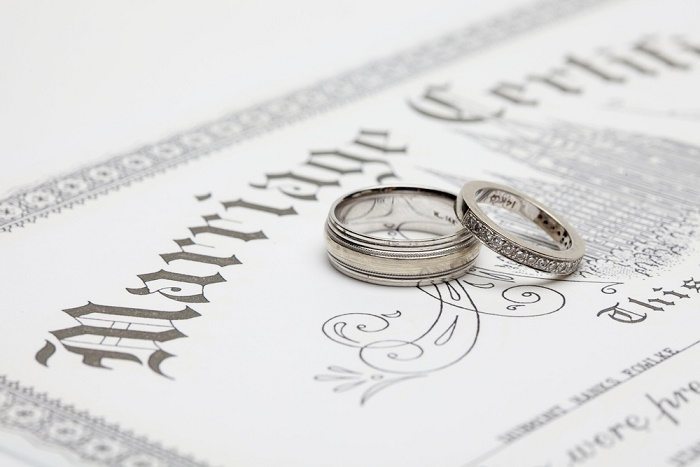Marriage Equality Could Be Health-Care Access Boon for LGBTQ Couples
Gay couples are less likely to have employer-sponsored health insurance than married heterosexual couples, but that may be about to change.

Gay couples are likely to gain health insurance coverage now that marriage equality is the law of the land, according to a Kaiser Health News report.
Before the the Supreme Court’s historic decision last week to legalize same-sex marriage nationwide, marriage equality advocates often shared stories of same-sex partners who were denied the right to visit their loved one in the hospital.
Unequal access to health coverage has been a less visible but no less important issue for same-sex couples, who are less likely to have employer-sponsored health insurance than married heterosexual couples.
Groups like the American Medical Association opposed bans on same-sex marriage because they led to disparities in health-care access. Almost all companies who offer insurance cover employees’ spouses, but only about 39 percent also cover same-sex domestic partners, according to a Kaiser Family Foundation survey of employers. The same percentage of employers also cover opposite-sex domestic partners.
Federal employees who have a legal same-sex marriage license have been eligible for partner benefits since 2013, even if they lived in a state that didn’t recognize their marriage.
“It’s going to increase coverage,” Jennifer Kates, a vice president at the Kaiser Family Foundation, said of the Supreme Court’s ruling in favor of the ACA’s subsidies.
It’s unclear how big the increase will be, but some research suggests the difference could be significant for LGBTQ couples.
After New York legalized same-sex marriage in 2011, about 6 percent more men and 9 percent more women in same-sex relationships gained employer-sponsored coverage, according to a recent study published in the Journal of the American Medical Association.
At the same time, Medicaid coverage decreased slightly for people in same-sex relationships, possibly because some Medicaid recipients were able to gain health coverage through their spouse.
It’s also unclear whether all employers will be required to add same-sex spouses to employee health plans, and whether employers might change their health benefits in other ways as a result of the ruling.
The ruling did not take as clear a stance as it could have on other forms of anti-LGBTQ discrimination, such as in the workplace, as Rewire’s Jessica Mason Pieklo notes. But case law is favorable to equality advocates, and Obama appointees have argued that workplace discrimination against LGBTQ people violates federal laws against sex discrimination.
The gay rights advocacy group Lambda Legal said that employers should not be allowed to refuse to add same-sex spouses to health insurance plans.
Another concern is whether employers will drop their domestic partner benefits entirely, since those benefits often served as a stopgap to cover gay couples who couldn’t legally marry.
Advocates for gay rights are urging employers to keep their domestic partner benefits as a commitment to family diversity and LGBTQ equality—especially since LGBTQ people still aren’t guaranteed full legal protection from discrimination.
“If an LGBT employee is, in effect, ‘outed’ by being required to obtain a public marriage license in a state that doesn’t provide explicit non-discrimination protections, it could place that employee and their family at risk of being denied credit, housing and public accommodation,” Human Rights Campaign Legal Director Sarah Warbelow said in a statement.
Medical authorities point out that in addition to better health-care access, marriage itself provides health benefits like longer life spans and lower rates of depression. Research into these benefits focuses on heterosexual marriage, but experts believe same-sex couples would enjoy the same benefits.

